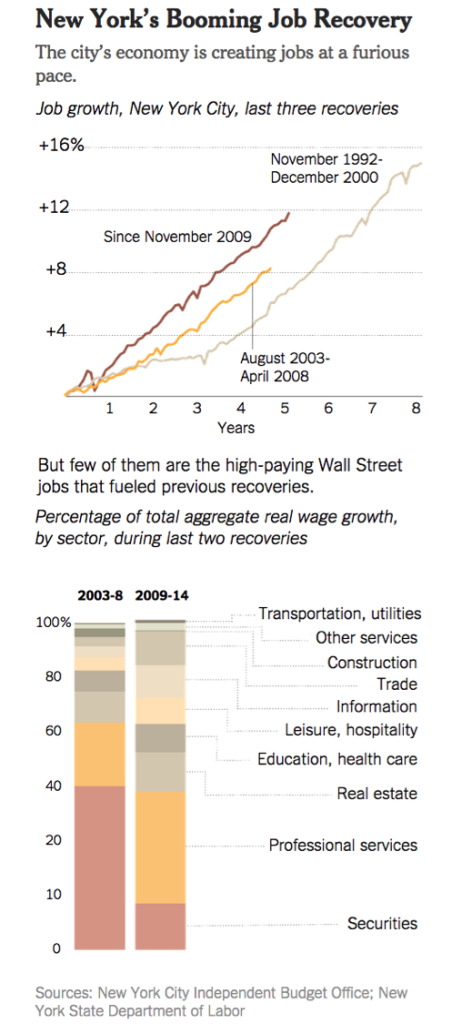Urbanpreneurs – the future of jobs.
 If there is something that worries in Spain – beyond political corruption – this is unemployment, especially among young people.
If there is something that worries in Spain – beyond political corruption – this is unemployment, especially among young people.
The Spanish case has many peculiarities, the rigidity of markets, investment in public works guided mostly by short-term electoral criteria that not only detract extremely necessary resources but also generate regressive cultural habits and advocate for monopolistic ways to compete, … Much has been written about this situation and more will be written without a doubt, elections are close and all this same year …
However, beyond the Spanish case, job creation is a big topic of discussion. Somehow, the Malthusian theories reappear every while with their message of inevitable job destruction because of technological advances – before was automation, now artificial intelligence and machine learning – together with the growing fate of population, better educated and hence with higher aspirations . However, despite the worst predictions we can witness how societies reinvent themselves after every crises employment “miraculously” recovers.
The really interesting question is therefore not whether we will survive the next reedition of the Malthusian fate – we certainly will – but how? From where will come job creation? This is the factor that changes from crisis to crisis and the earlier that we can guess it, the better that we can influence policies for job creation that spur growth instead of spending scarce public resources supporting sectors that won’t generate a significant growth in employment.
This question however doesn’t have a generic answer. As always, it is difficult to predict things, particularly the ones situated in the future.
One way to approach this question is to seek possible answers by observing what is happening in societies that are one step ahead of us, at the exit of the crisis or already growing healthy. In previous crisis we observed how employment was transferred from industry to software, web development or apps and we witnessed a gigantic trend of outsourcing to Asia. What is happening now?
The case of the US, especially New York is particularly interesting. An economy in its best shape since years with an aggregate growth of around 3% which translates into a job creation close to 12% in areas such as New York, is an excellent setting for a glimpse of the future, always there but always poorly distributed.
In New York the quintessential industry is finance. Looking at the structure of the previous recovery, 2003-2008, we can observe that almost 40% of employment creation comes from the financial industry, that was the time that Tom Wolfe extraordinarily well portrait in The Bonfire of the Vanities, The time of crack, easy money and cocaine everywhere. However if we look at today’s recovery will see that the picture has changed dramatically. Finance hardly accounts for 10% of job creation. Indeed, trading and arbitrage is done mostly by artificial intelligence programs and investments of small savers are basically online. Then, from where job creation comes from?
Looking at the NYTimes graphic attached we can see that it comes from Professional Services and this is where everything starts to be interesting, because almost everything is different.
It accounts from small businesses ranging from consulting to coaching, website creation or personal trainers, a bit of everything. They are professionals who are no longer embedded in the structure of a company but connected through the net, working either for companies or for other professionals. We all have witnessed how company boundaries have disolved and many of the services previously done internally are now outsourced and coordinated through the net. Furthermore this multitude of professionals now without job security and company support, require services not previously necessary: it is a high priority for these professionals to remain competitive and that translates into training, mentoring, learning new skills together with the provision of services previously available in company and completely new ones – many linked to the establishment of an online reputation- such as website creation, video shooting or online promotion.
The main characteristic is that they are no longer only professionals, they have become also entrepreneurs by necessity, urban entrepreneurs in fact: urbanpreneurs. Working in cafes or co-working spaces to cover for the need for human and professional interaction. Of course they aspire to grow but not in the same way as traditional startups. They are not desperately looking for a first, second and maybe third round of funding, neither seek to connect and participate in global markets, this time is indeed different.
Then, if this is the new form that job creation will take, do we have in place the right policies to support it? or are we still committed to a world that has changed dramatically forever?
